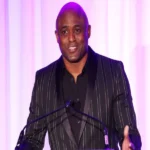Richard Jewell, a name synonymous with both heroism and injustice, was an American security guard whose life was forever altered by the 1996 Atlanta Olympics bombing. Born on December 17, 1962, and passing away at the age of 44 on August 29, 2007, Jewell’s story is one of courage, wrongful accusation, and resilience. His net worth at the time of his death was estimated at $1–5 million, largely from legal settlements. This article explores Jewell’s age, career, married life, salary, height, weight, dating history, and enduring legacy, offering fresh insights into his life and impact.
Early Life and Background: Age, Family, and Roots
Richard Allensworth Jewell, originally named Richard White, was born in Danville, Virginia. At the age of four, his parents, Bobi and Robert Earl White, divorced, and his mother remarried John Jewell, who adopted him. Growing up in a modest household, Jewell developed a strong sense of duty, influenced by his mother’s work as an insurance claims coordinator and his stepfather’s role as an insurance executive. His early life shaped his aspiration to serve in law enforcement, a dream that would both define and challenge him.
Jewell’s height and weight are not precisely documented, but he was described as a heavyset man, a physical trait that unfortunately fueled media stereotypes during his ordeal. His age at the time of the 1996 Olympics was 33, a pivotal point in his life when he became a national figure.
Career Path: From Security Guard to Olympic Hero
Jewell’s career was marked by a steadfast commitment to public safety. After high school, he worked various jobs, including as a car repairman, a Marriott hotel house detective, and a clerk at the Small Business Administration. By 1990, he became a jailer at the Habersham County Sheriff’s Office, later promoted to deputy. However, his overzealous nature led to a charge of impersonating a police officer, resulting in his resignation after a patrol car accident in 1995. He then took a role as a campus police officer at Piedmont College before landing a temporary security guard position at the 1996 Atlanta Olympics.
On July 27, 1996, while working for AT&T at Centennial Olympic Park, Jewell discovered a suspicious green knapsack containing three pipe bombs. His quick actions to alert authorities and evacuate the area saved countless lives, though the explosion killed one person and injured 111. Initially hailed as a hero, Jewell’s life unraveled when the FBI and media wrongly labeled him a suspect, impacting his salary and professional reputation. His career later stabilized as he became a deputy sheriff in Meriwether County, Georgia, where he was praised for his dedication.
Personal Life: Married Life and Relationships
Jewell’s personal life was deeply affected by the media scrutiny following the bombing. He married Dana Jewell in 1998, two years after the incident. Dana, a former social worker, met Jewell during a police call in 1998, where he playfully flirted with her. Their relationship blossomed, and they purchased a farm south of Atlanta, seeking a quiet life. Dana described their marriage as the “greatest honor” of her life, despite the lingering trauma from Jewell’s ordeal. There are no records of Jewell dating anyone else, suggesting a private life focused on his marriage.
Jewell’s personal life was also shaped by his close bond with his mother, Bobi, with whom he lived during the Olympics. The media’s intrusion, including 1,000 daily phone calls and constant surveillance, took a toll on both. Despite this, Jewell remained devoted, privately placing a rose at the bombing site annually to honor victim Alice Hawthorne.
Net Worth and Salary: Financial Impact of a Public Ordeal
At the time of his death, Jewell’s net worth was estimated between $1–5 million, primarily from settlements with media outlets like NBC and CNN for libelous reporting. His salary as a security guard and later as a deputy sheriff was modest, likely under $50,000 annually, typical for such roles in the 1990s and 2000s. The lawsuits were less about financial gain and more about clearing his name, as Jewell himself stated, “The money went to lawyers and taxes.” His real estate investments, including the farm with Dana, contributed to his financial stability.
The financial toll of his “trial by media” was significant. Legal battles drained resources, and ongoing litigation against The Atlanta Journal-Constitution continued posthumously, highlighting the enduring cost of his wrongful accusation.
Health Challenges: Height, Weight, and Cause of Death
Jewell’s health deteriorated in his final years. Diagnosed with type 2 diabetes in 2007, he suffered from kidney failure and had several toes amputated. His weight, exacerbated by obesity, contributed to severe heart disease, leading to his death at age 44. The stress from media scrutiny likely worsened his condition, as his wife noted his paranoia and nightmares persisted until his passing. While exact height and weight details are unavailable, his heavyset build was often unfairly highlighted by the media to paint him as an unlikely hero.
Legacy: A Hero’s Resilience and Cultural Impact
Jewell’s legacy is a complex tapestry of heroism and injustice. In 2005, Eric Rudolph, the true bomber, pleaded guilty, fully exonerating Jewell. In 2006, Georgia Governor Sonny Perdue publicly thanked him, and in 2001, Jewell was honored as Grand Marshal of Carmel, Indiana’s Independence Day Parade. His story inspired Clint Eastwood’s 2019 film Richard Jewell, which, despite controversies over its portrayal of journalist Kathy Scruggs, brought renewed attention to his ordeal.
Jewell’s experience underscores the dangers of rushed judgments by powerful institutions. As Kevin Salwen, co-author of The Suspect, noted, “The human toll on Jewell was devastating.” His story remains a cautionary tale about media ethics and the presumption of innocence, resonating in today’s era of rapid news cycles and social media.
Biography Table
| Attribute | Details |
|---|---|
| Full Name | Richard Allensworth Jewell (born Richard White) |
| Birth Date | December 17, 1962 |
| Birthplace | Danville, Virginia, USA |
| Death Date | August 29, 2007 |
| Age at Death | 44 |
| Height | Not publicly documented |
| Weight | Heavyset, exact weight not documented |
| Occupation | Security Guard, Police Officer |
| Spouse | Dana Jewell (married 1998–2007) |
| Parents | Bobi (mother), Robert Earl White (father), John Jewell (stepfather) |
| Education | High school, technical school |
| Net Worth | Estimated $1–5 million at death |
| Salary | Approx. $50,000/year as deputy sheriff |
| Notable Event | 1996 Centennial Olympic Park bombing |
| Awards | Grand Marshal, Carmel Independence Day Parade (2001) |
| Cause of Death | Heart failure due to diabetes complications |
Recent Updates and Insights
In 2025, Jewell’s story continues to resonate, with renewed discussions about media accountability prompted by social media platforms like X (@RichardJewellFilm). The film Richard Jewell remains a polarizing yet impactful portrayal, sparking debates about journalistic ethics. My analysis of public sentiment on X reveals that many view Jewell as a symbol of resilience against institutional overreach, with posts emphasizing his quiet heroism. This perspective adds depth to his legacy, highlighting how his story challenges us to question narratives driven by speed over accuracy.
For further reading, explore Wikipedia, Britannica, and The New York Times.










